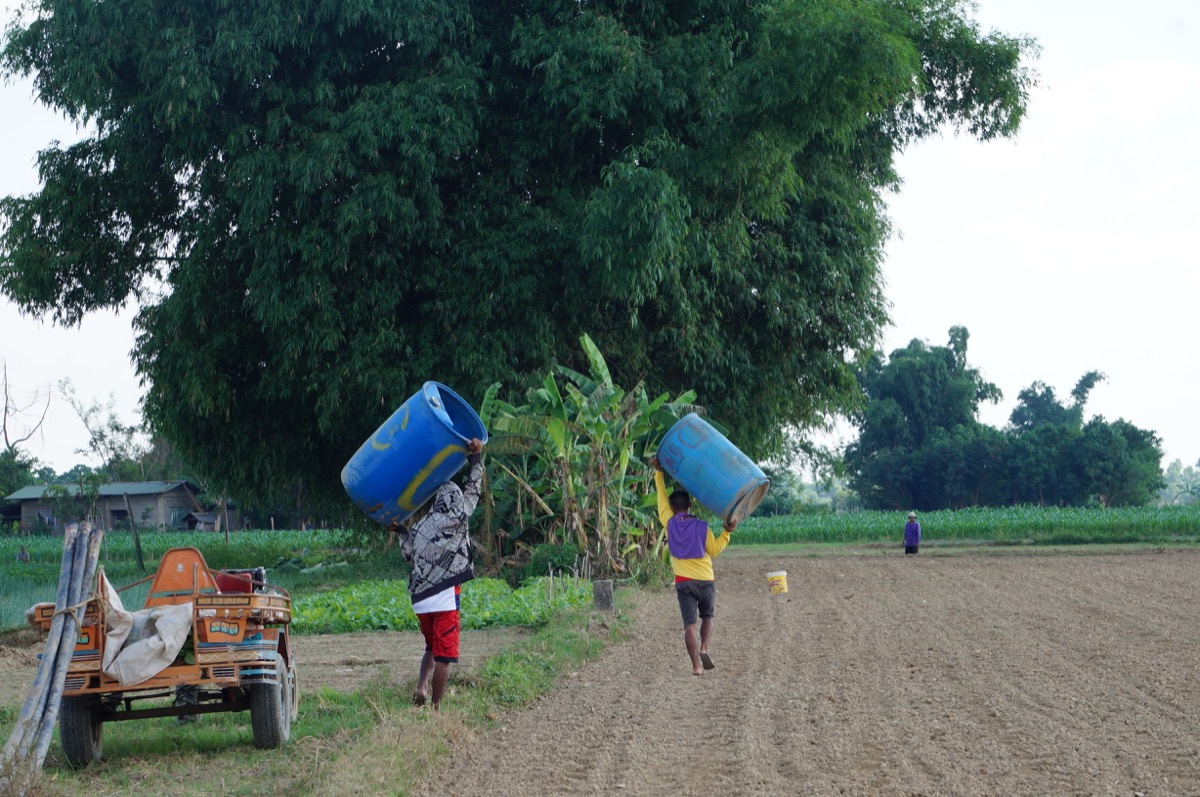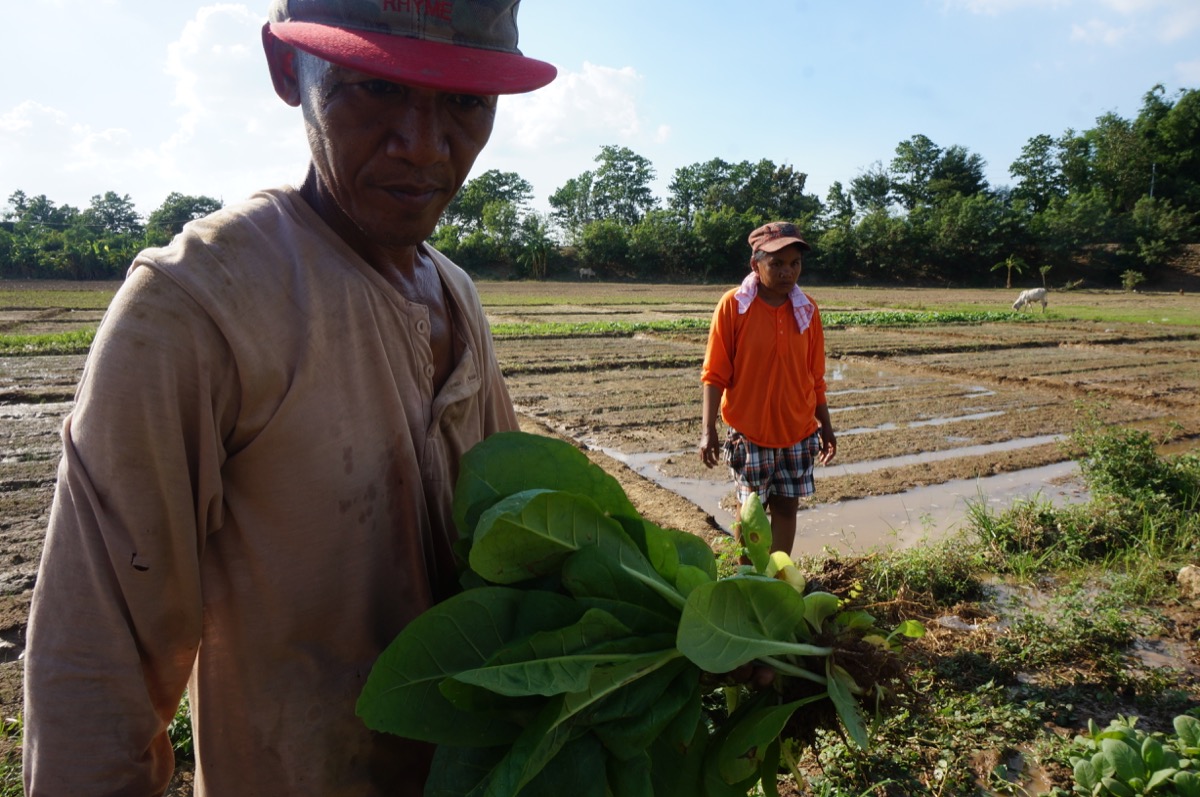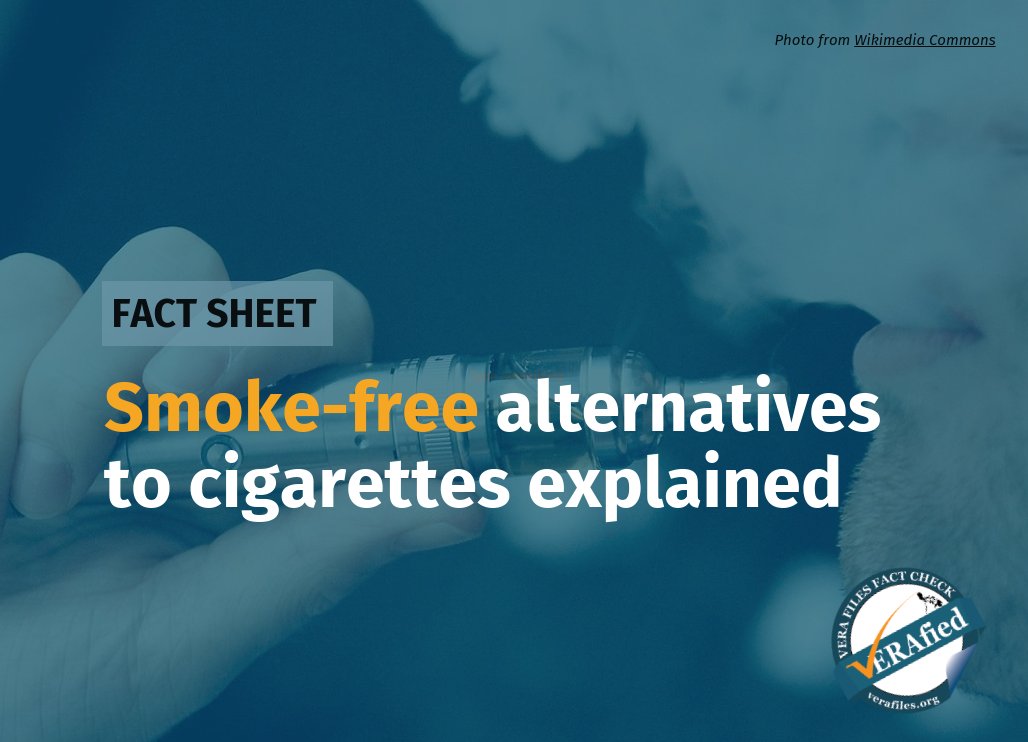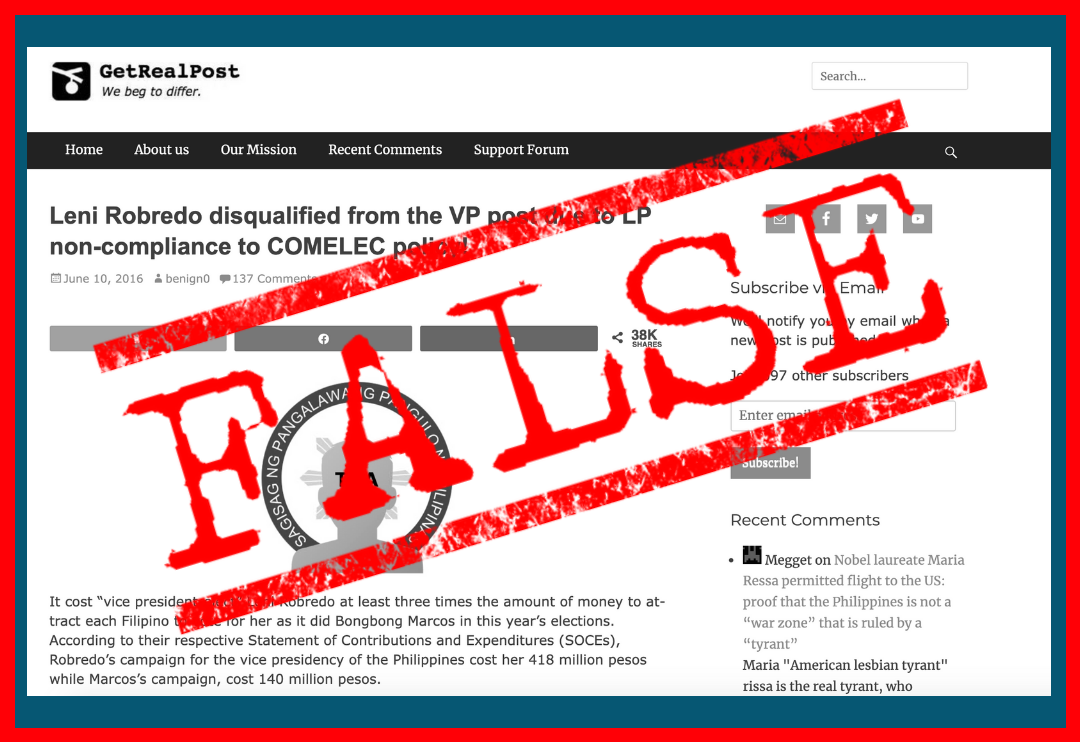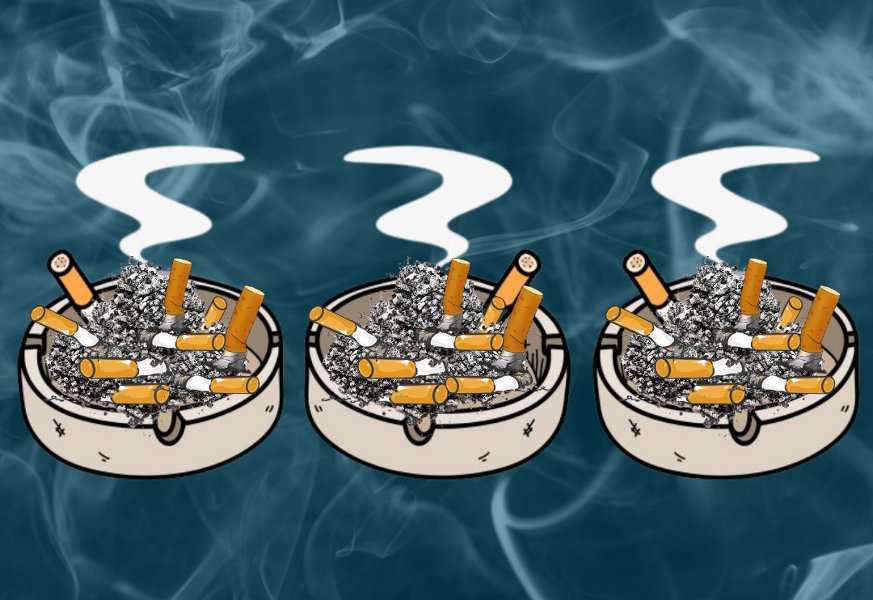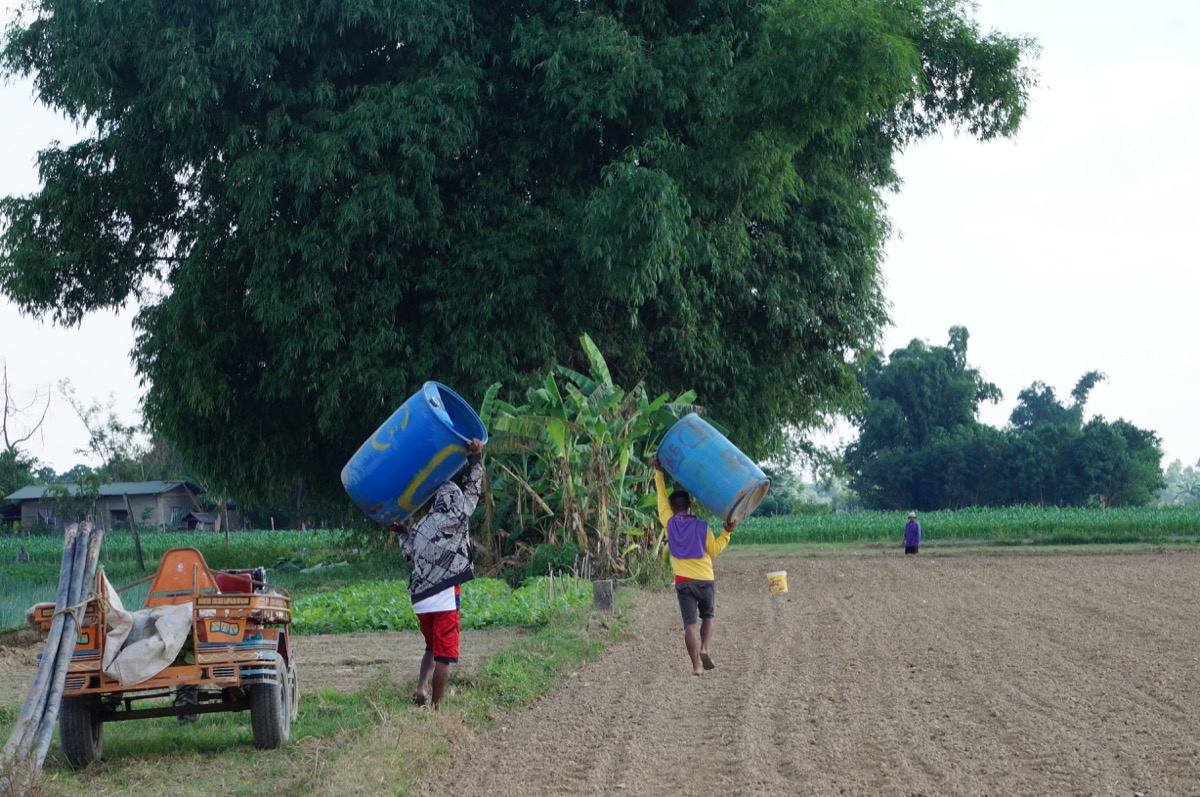
Second of two parts (See Part 1: Like Arroyo, Aquino gov’t releases billions to LGUs before elections)
ALCALA, Pangasinan — At the end of the newly opened section of the Tarlac-Pangasinan La Union Expressway, the one that exits at Rosales town, is a huge monstrosity of a structure, appearing empty and abandoned.
It is supposed to be a rice and corn drying facility, costing hundreds of millions, and built from the share of the town’s excise taxes in burley and native tobacco.
Reports on the cost of construction of the facility, quoting local farmers’ groups vary from P80 million to P200 million, but the groups agree that the facility was built with funding from the tobacco excise tax.
Concerned citizens cite this as an example of people’s taxes going down the drain and have filed plunder cases against former Pangasinan Rep. Mark and incumbent Rep. Kimi Cojuangco, various news reports say, for alleged misuse of the tobacco shares in their capacities as legislators of the 5th District of Pangasinan.
“The agro-industrial complex so built and the machineries found therein [are] not within the scope of the requirement of the law,” noted Save Pangasinan Movement in an earlier plunder complaint, against local officials but on the same structure and the same allegation of misuse of excise tax shares.
Rep. Kimi Cojuangco said the case is “frivolous” and “totally ridiculous,” claiming the shares had been fully liquidated.
“As their congresswoman, we discussed with mayors on how was best way to use that money. They wanted drying facilities to help farmers,” she told VERA Files.
“Frivolous filing of case by Espino,” she said, referring to political rival Pangasinan governor Amado Espino Jr.
“Totally ridiculous. Now 20 percent of said tax went straight to Governor Espino and he has nothing to show for it. How he spent that amount is questionable,” she added.
Her husband, the former congressman for the district, brushed off the allegations in a March 22, 2016 report in The Standard, however. He said that the allegations were motivated by politics.
“The record speaks for itself. There were no anomalies whatsoever in any of the transactions involving the tobacco excise taxes,” Mark Cojuangco, former chairman of the congressional oversight committee on the tobacco excise tax, said in the report.
The complaint cites Republic Act 8240, which it says is very clear on where funds from the tobacco excise taxes should go: cooperative projects to enhance the quality of agricultural products and increase income and productivity of farmers; livelihood projects particularly the development of alternative farming system to enhance farmer’s income; and agro-industrial projects that will enable tobacco farmers to be involved in the management and subsequent ownership of projects such as post-harvest and secondary processing like cigarette manufacturing and by-product utilization.
On the last, the complaint notes that the building in Alcala is “in reality a rice and corn drying facility.”
Burley and native tobacco producing provinces and municipalities are by law entitled to a 15-percent share in the total government excise tax collections for the said product.
Months before she left office, former President Gloria Macapagal-Arroyo released a windfall of these shares to beneficiary provinces, accumulated from 1997 to 2007, amounting to some P6.4 billion.
Alcala received P232 million in burley and native tobacco excise tax shares, according to Save Pangasinan Movement, a portion of which was appropriated for the construction of the rice and corn drying facility. In a report on InterAksyon, Save Pangasinan Movement pegged the allocation to Alcala at P332 million from a total of around P600 million released to the 5th District.
Although the drying facility was opened mid-last year, local farmers, by law the intended beneficiaries of the facility, lament that it has not helped them at all.
“Walang kwenta lang ito sa aming maliliit na magbubukid (This is useless for us small farmers),” said Ruben Lagmay, a farmer of corn and tobacco.
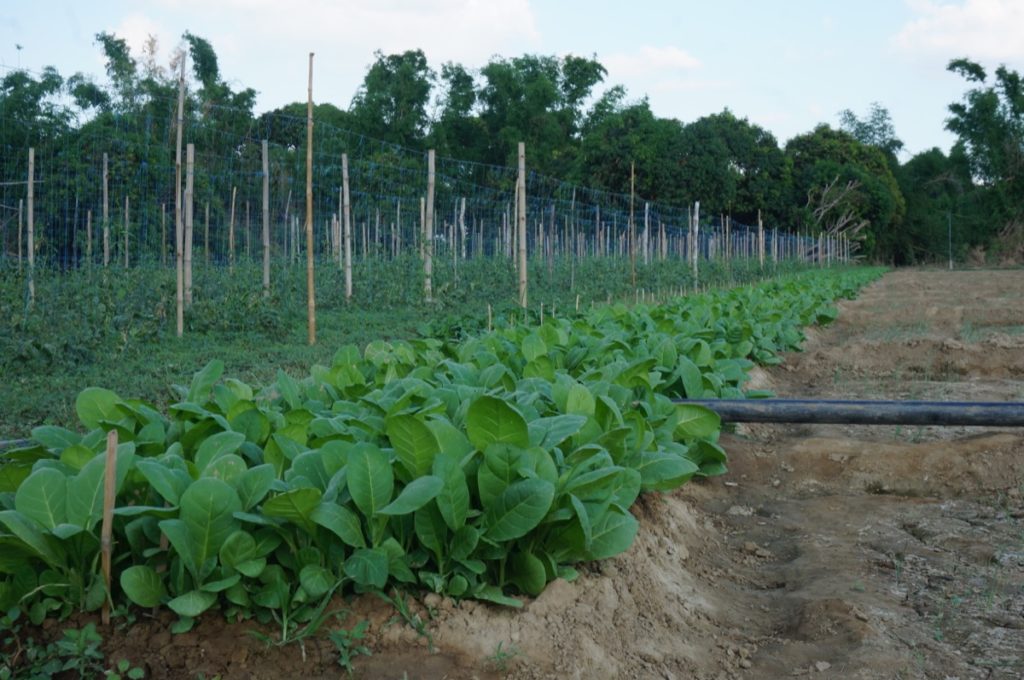
“Para sa mga negosyante lang, hindi sa magbubukid (Only businessmen get to use it, not us farmers),” Lagmay said, recalling his experience getting denied use of the facility when it opened last year because he did not meet the minimum volume requirement.
Locals say the drying facility is also open only on select days, further highlighting its white elephant status, and how misplaced its towering grandness is in the middle of a third-class agricultural municipality.
Lagmay and other farmers still rely on an age-old trick in drying their produce: “Ibibilad na lang sa kalsada (Dry the harvest on the street).”
Lagmay has since become a leader of a group of tobacco farmers, the North and Central Luzon Tobacco Farmers Association, which he says has now some 5,000 members.
The group early this year filed the plunder cases against Reps. Mark and Kimi Cojuangco, various news reports say, for alleged misuse of the tobacco shares in their capacities as legislators of the 5th District of Pangasinan.
The sharing of burley and native tobacco excise taxes had heavily favored congressional districts, which get 80 percent, while provincial governments, and municipalities and cities, get only 10 percent each.
In March this year, the Aquino administration released tobacco shares directly to local governments, following the Supreme Court ruling against any post-enactment interventions by legislation on the national budget.
The release came on the eve of the elections, mirroring what Arroyo did back in 2010.
Lagmay said farmers are yet to feel the benefits of their share in tobacco excise taxes.
“Ewan ko lang sa mga kasama ko, pero para sa akin, wala akong natikman (I do not know about my fellow tobacco farmers, but I have yet to taste the benefits of these supposed shares),” he said. – Jake Soriano with Daniel Abunales, Jonathan de Santos, Lala Ordenes and Luz Rimban
